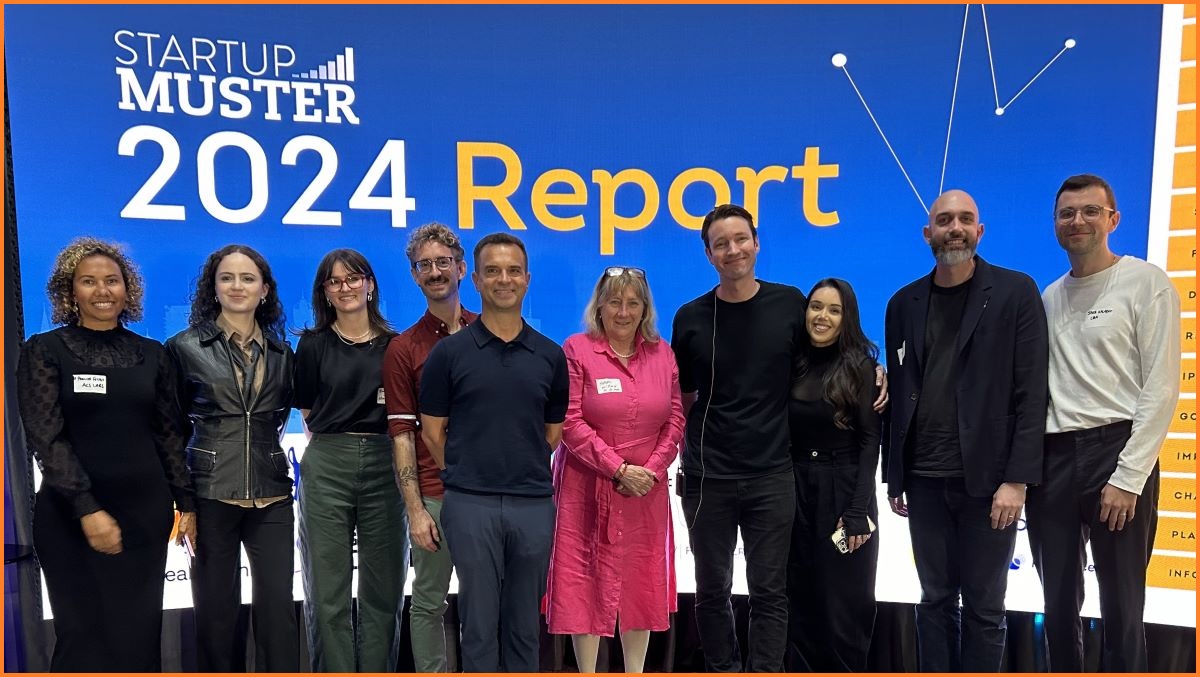R&D incentive uncertainty, migration changes, and the cost of living crisis are slamming the Australian startup community, according to the 2024 Startup Muster report.
Launched yesterday, this year’s report found Australians are starting ventures at an increasingly older age with more looking at overseas markets and investors.
The cost of living crisis, however, was biting founders with nearly a quarter of the survey respondents reporting having difficulty paying bills or debts when due, and 2 per cent receiving financial aid.
Not surprisingly, 22 per cent reported having a supportive partner or spouse as critical to their business.
“Cost of living pressures are clearly evident in the data, and perhaps not surprising," Startup Muster managing director, Murray Hurps, told Information Age.
"It's also a great reminder of the importance of Australia's innovators in providing productivity uplifts for Australia that can help.
“A key message though to government is that changes to areas like migration and the R&D Tax Incentive need to be well thought out and communicated as there are real-world impacts on the startup sector and the wider community."
Along with the economic challenges facing startups, recent migration changes have also had an impact with 7 per cent of respondents reporting being negatively affected by recent immigration restrictions, and one in ten startup support organisations claiming a similar impact.
R&D tax uncertainly
While the survey was done before the Federal government’s Research and Development review announced last week, the survey had strong views on how the program can be improved.
The incentive remains the most critical government support program with 13 per cent of the respondents having secured funding through the scheme, however nearly a third criticised the complexity of the process and 27 per cent complained about the time taken for decisions under the program.
“Startup Muster data highlights that 73 per cent of startups reported they were engaged in research and development in the last year,” said Rowena Barrett, QUT Pro Vice-Chancellor, Entrepreneurship and Regional Innovation, in the report.
“Government needs to ensure all are aware of the R&D Tax Incentive which can reduce costs for companies, lower risk and accelerate time to market for new ideas.”
The report outlined a range of recommendations from the sector in reforming the R&D tax system with 10 per cent calling for a simplification of the process, 6 per cent wanting better clarity on rules and eligibility, while an increase in the rebate and better accessibility for early stage startups were cited by 5 per cent of those answering the survey.
The funding squeeze
A significant number of Australian startups reported difficulty in securing adequate funding.
While many founders rely on personal savings and the R&D tax offset, external funding options remain a challenge for several reasons, including expertise gaps, unsuitable funding options, and time constraints.
Notably, 69 per cent of startups indicated they require external funding to sustain operations with many investing significant time and resources in their fundraising efforts, averaging over 400 hours and contacting more than 100 investors per successful campaign.
This funding crunch reflects broader economic uncertainties.
Venture capital availability, while robust in previous years, has become more selective with Australian startups increasingly seeking international investors, driven by access to larger markets, specialised industry knowledge, and more risk-tolerant capital sources.
Changing focus
In response to local challenges, many Australian startups are expanding their focus to global markets.
More than 80 per cent of startups indicated plans to target international geographies, with the United States, United Kingdom, and New Zealand among the top destinations.
The report also found startup focus areas for the sector’s supporters are changing with fintech falling out fashion – nearly halving from last year’s 23 per cent to 12 per cent this year – while there has also been a substantial pivot away from environmental ventures with decarbonisation, clean, and green-tech fields also showing substantial drops.
Medtech ventures were the most popular with 40 per cent of supporters being interested in the field, slightly up from last year’s 37 per cent, and quantum computing saw steady growth, something that may well increase next year on the back of today’s National Reconstruction Fund announcement of a $13m investment in Quantum Brilliance to build a foundry for diamond-based quantum devices.
Director of startups incubator ACS Labs, Pauline Fetaui, said the Startup Muster insights into the trends and challenges assist ACS Labs improve services provided to founders across Australia.
“This report is critical to identify the issues affecting the ecosystem and the data helps us understand where we can support startups and the wider ecosystem."
Hurps concluded on an upbeat note, saying “there are some very bright spots, we’re seeing more Australian startups looking to go global, surprisingly high collaboration rates with research organisations, and a strong representation of deep tech companies in the broad startup community."
ACS is a financial sponsor of Startup Muster.










